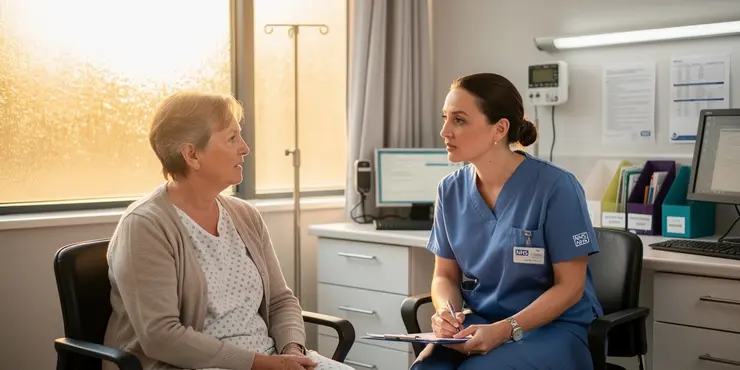
Find Help
More Items From Ergsy search
-
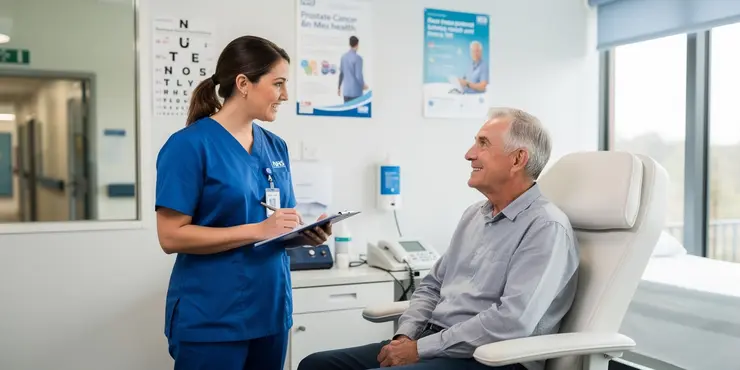
Breakthrough in Cancer Treatment Offers Hope for Prostate Cancer Patients
Relevance: 100%
-
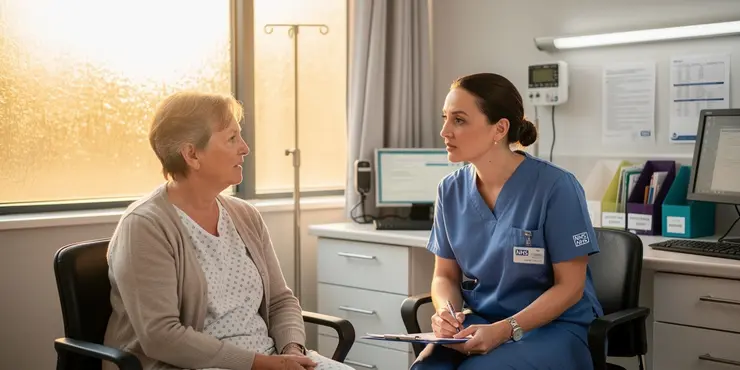
Breakthrough Cancer Treatment Shows Promise for NHS Patients
Relevance: 97%
-
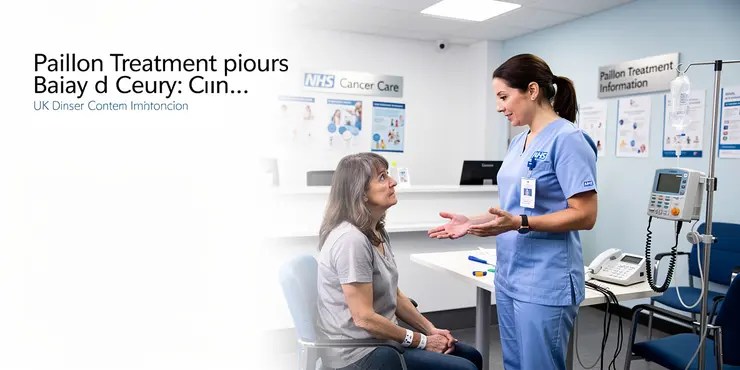
What is Paillon treatment for cancer?
Relevance: 48%
-
What is the role of immunotherapy in prostate cancer treatment?
Relevance: 46%
-
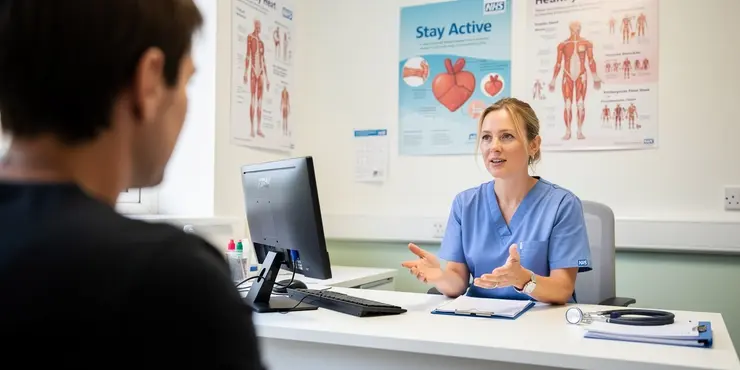
What types of exercise are beneficial for bowel cancer patients?
Relevance: 46%
-
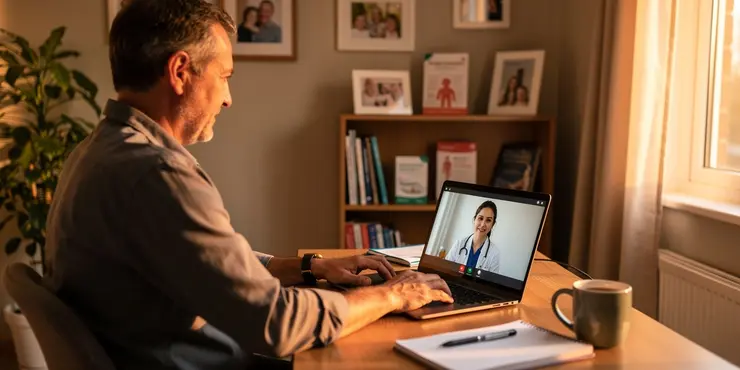
Are there online support services for prostate cancer patients on the NHS?
Relevance: 45%
-
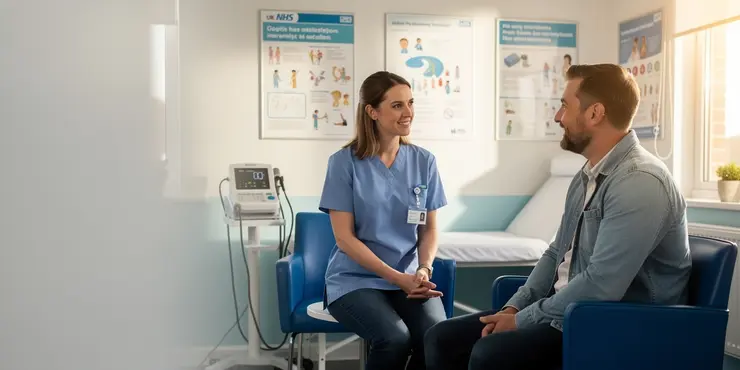
Are there clinical trials available for prostate cancer treatment?
Relevance: 45%
-
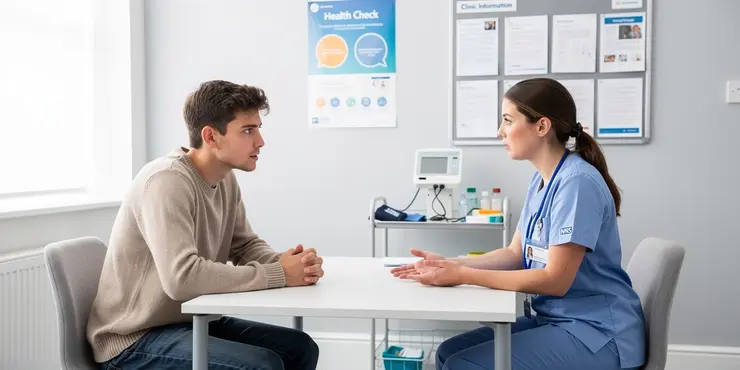
What types of treatments are available for testicular cancer?
Relevance: 45%
-
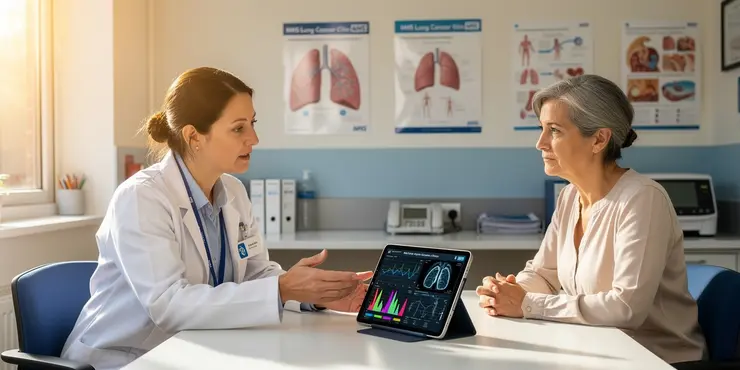
How can AI improve patient outcomes in lung cancer?
Relevance: 45%
-
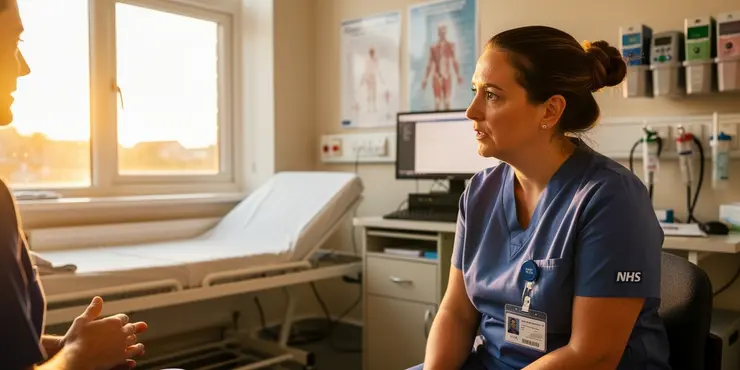
What factors determine the treatment plan for prostate cancer?
Relevance: 45%
-
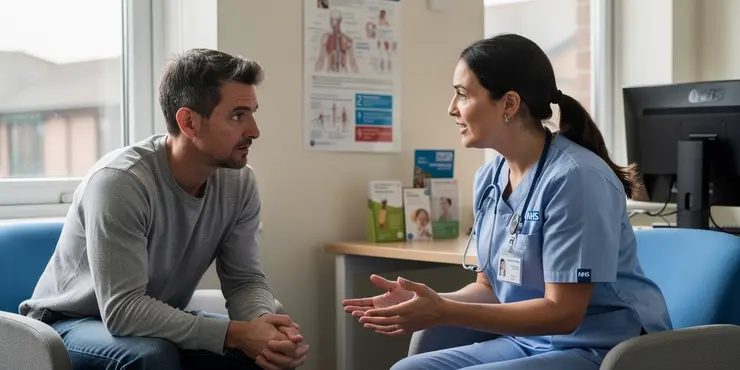
How does Abiraterone work in cancer treatment?
Relevance: 44%
-
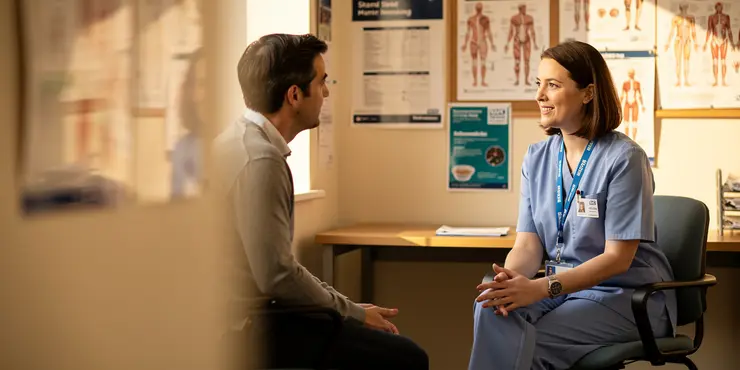
What treatment options are available for bowel cancer?
Relevance: 44%
-
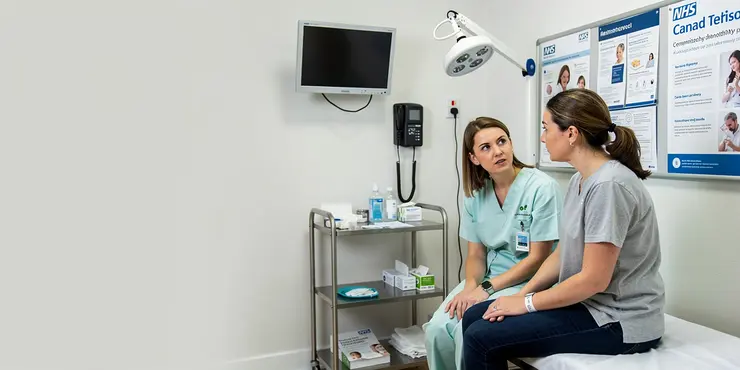
What is Radiotherapy, and its use in treatment for cancers?
Relevance: 44%
-
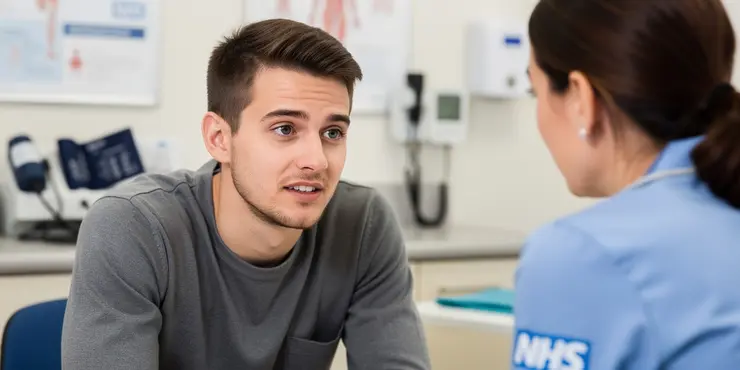
Can testicular cancer recur after treatment?
Relevance: 44%
-
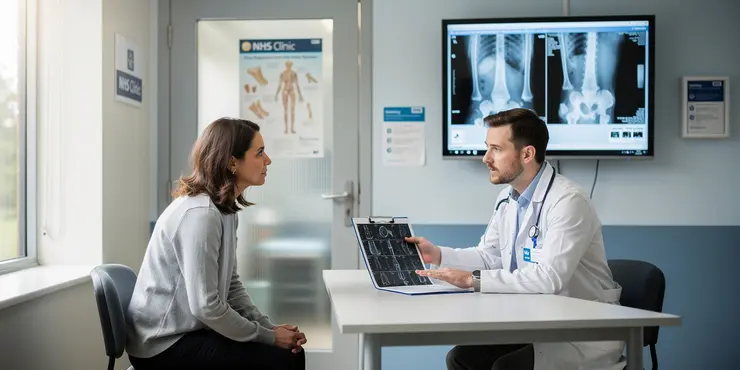
What is the purpose of a bone scan in prostate cancer treatment?
Relevance: 43%
-
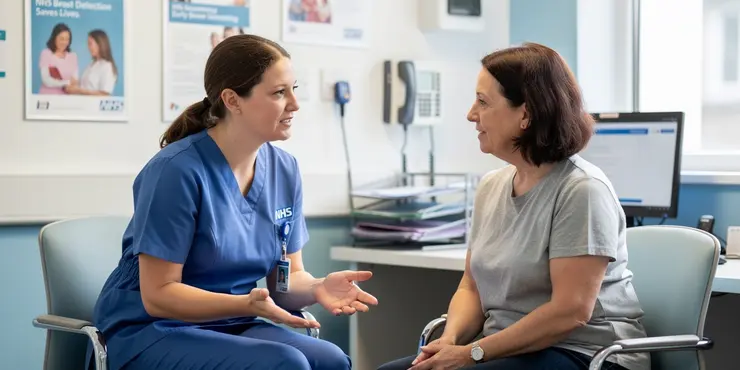
Breast cancer: testing and treatment | NHS
Relevance: 42%
-
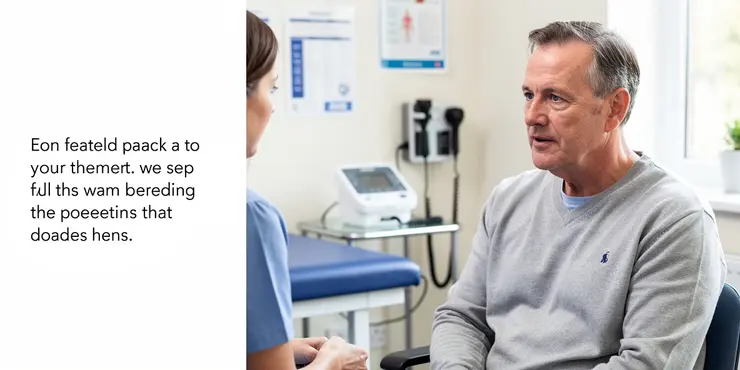
Can prostate cancer recur after treatment?
Relevance: 42%
-
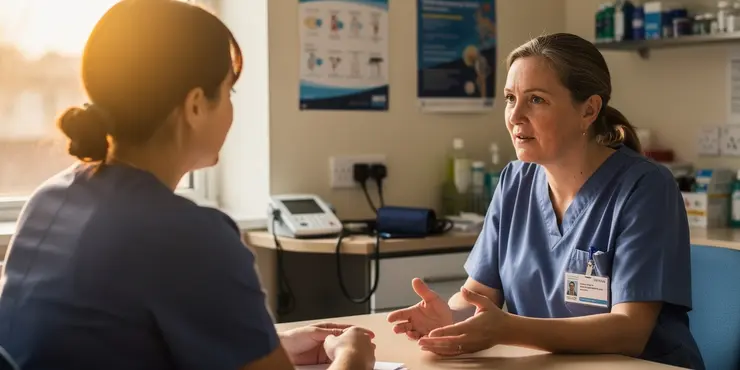
What are the side effects of bowel cancer treatment?
Relevance: 42%
-
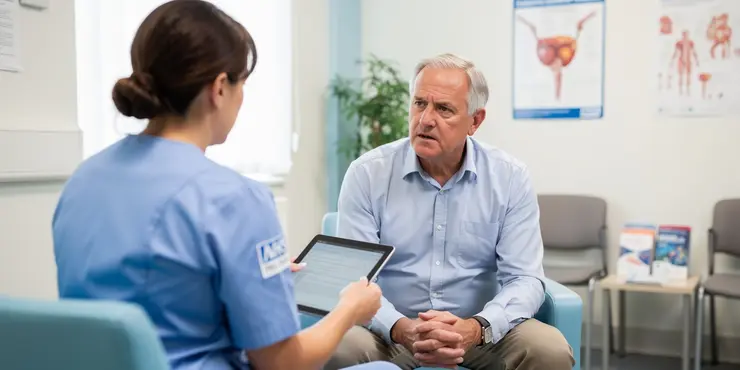
Where can I find online resources for prostate cancer treatments on the NHS?
Relevance: 42%
-
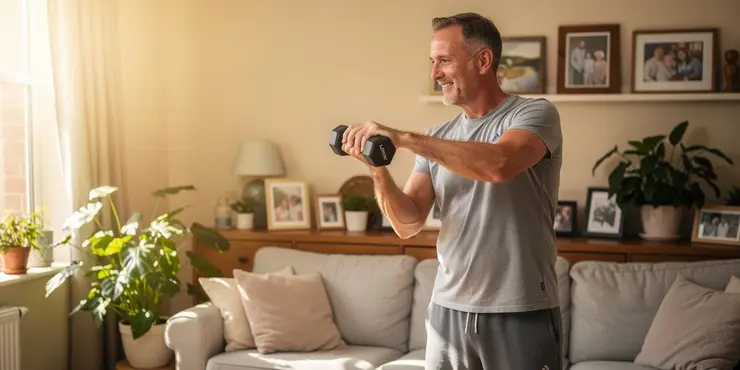
Can lifestyle changes complement prostate cancer treatment?
Relevance: 42%
-
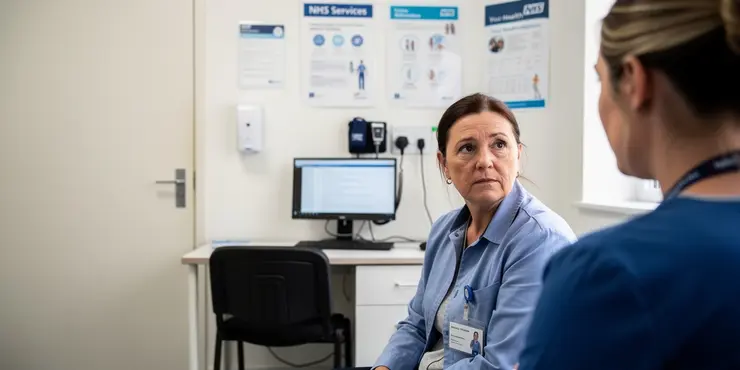
Does Paillon treatment treat all types of cancer?
Relevance: 41%
-
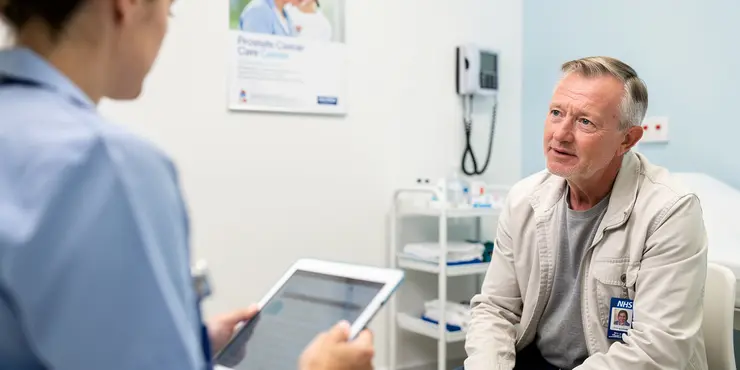
What is active surveillance in prostate cancer treatment?
Relevance: 41%
-
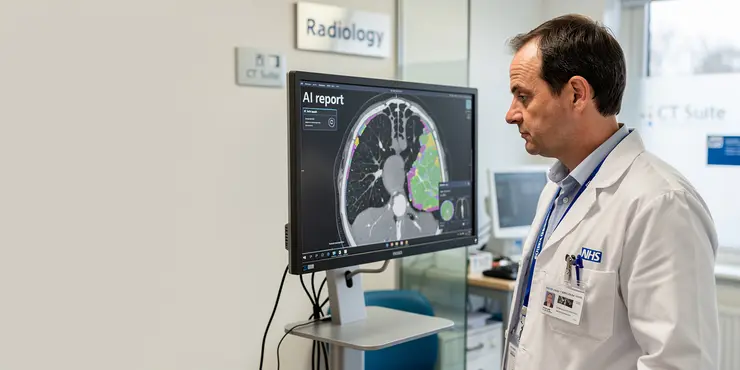
What is the future of AI and robotics in lung cancer detection and treatment?
Relevance: 41%
-
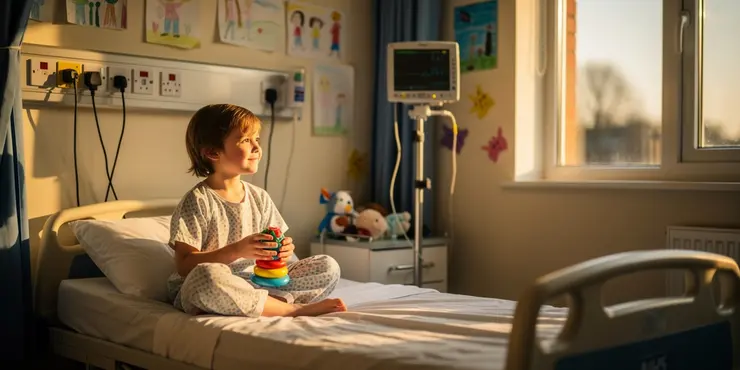
Can children with cancer receive Paillon treatment?
Relevance: 40%
-
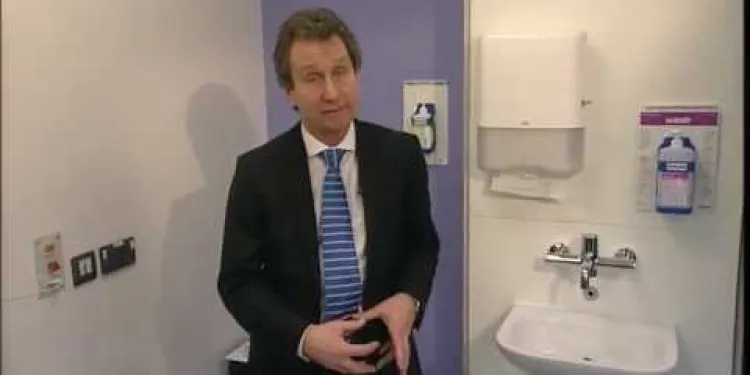
Hernias and their Treatments - A guide for patients
Relevance: 37%
-
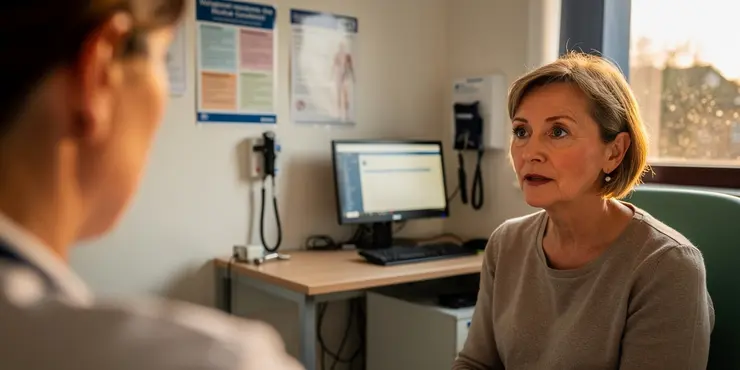
Vaginal Cancer
Relevance: 36%
-
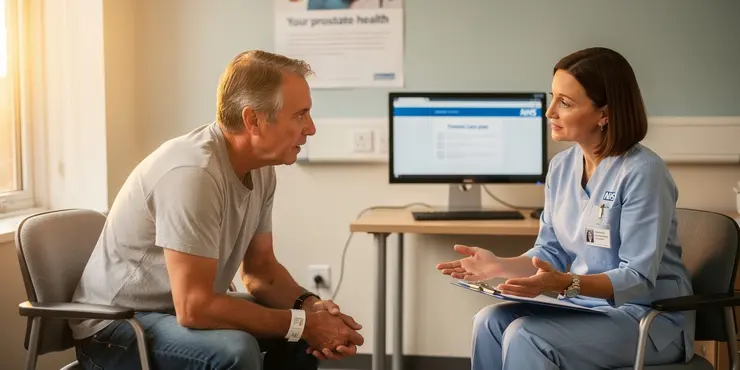
Treating prostate cancer
Relevance: 36%
-
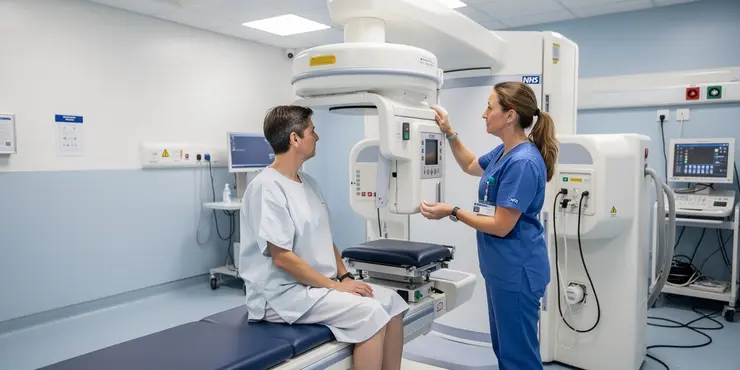
Cancer treatment: what happens during radiotherapy? | NHS
Relevance: 36%
-
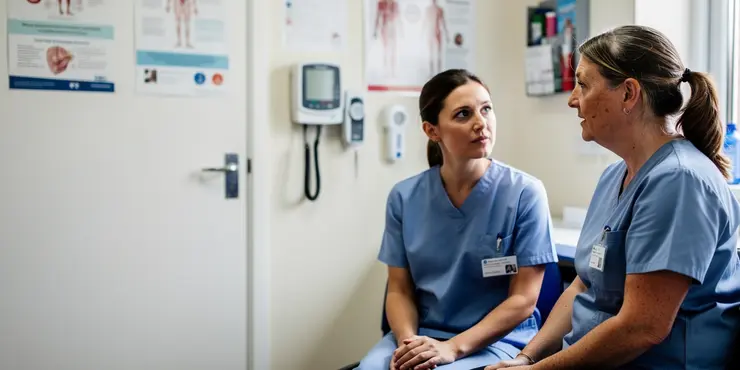
Endometrial Cancer
Relevance: 36%
-
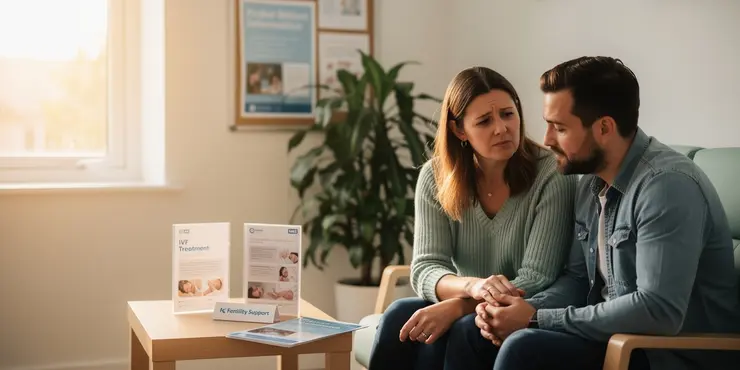
Infertility - IVF Treatment and Patient Information
Relevance: 36%
-
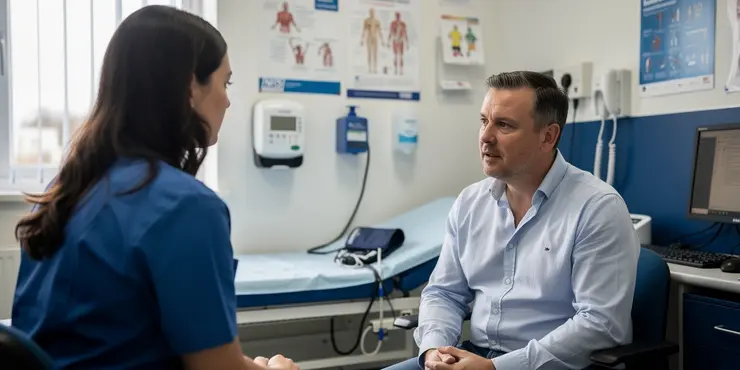
Does Abiraterone cure prostate cancer?
Relevance: 34%
-
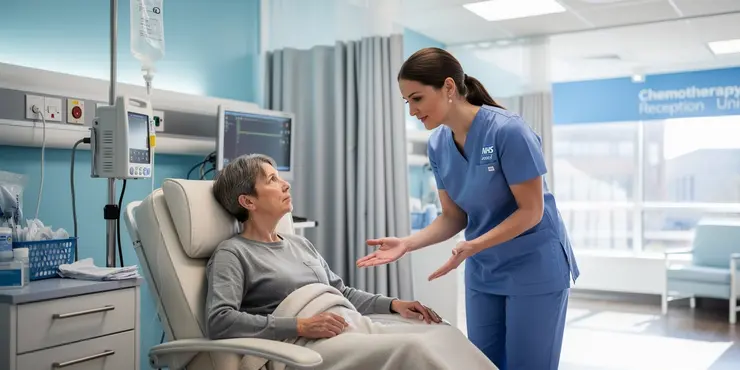
When is chemotherapy used for prostate cancer?
Relevance: 34%
-
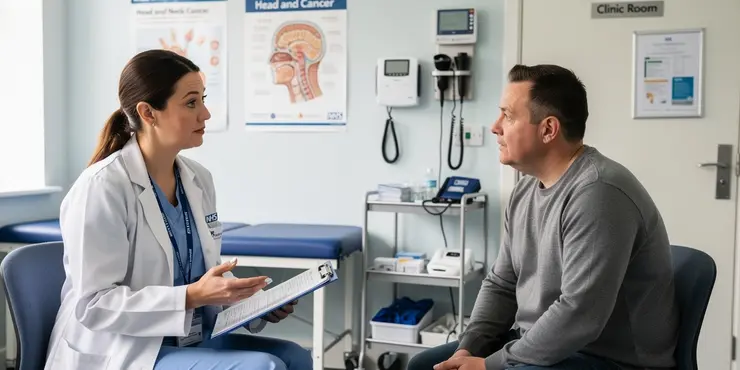
Head and Neck Cancer Diagnosis
Relevance: 34%
-
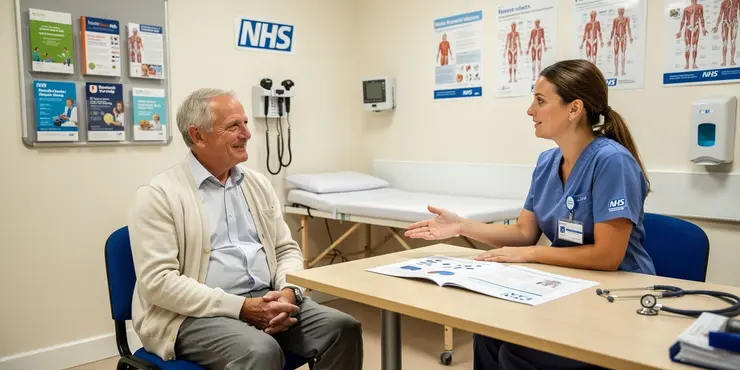
How is advanced prostate cancer treated?
Relevance: 34%
-
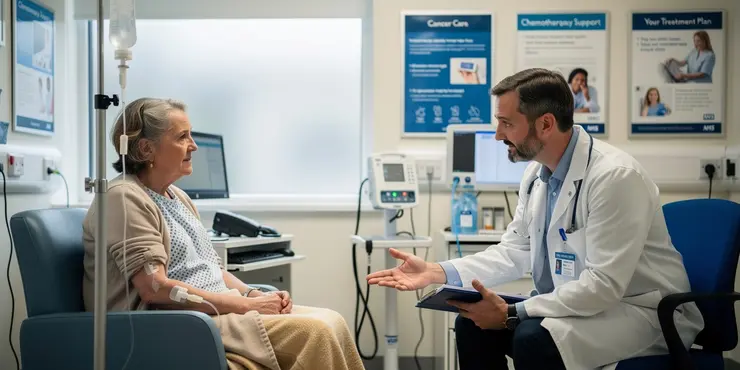
Chemotherapy - the patient journey
Relevance: 34%
-
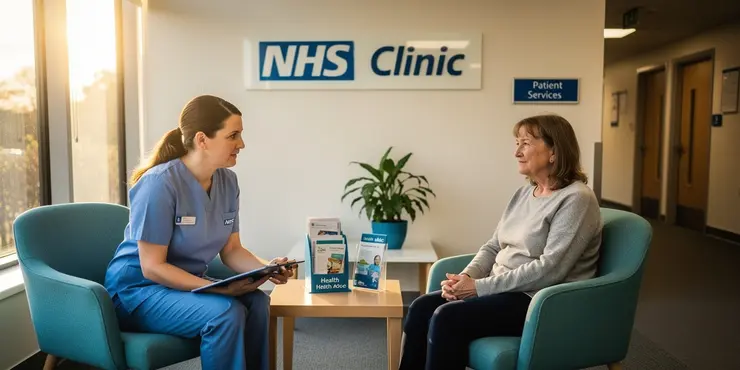
What is Cancer?
Relevance: 34%
-
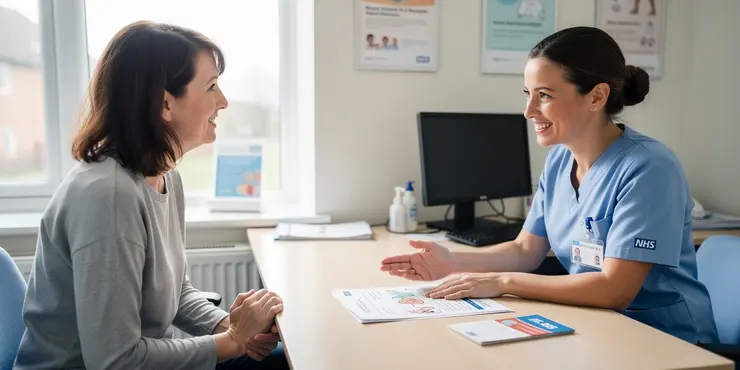
What support is available for individuals diagnosed with bowel cancer?
Relevance: 34%
-
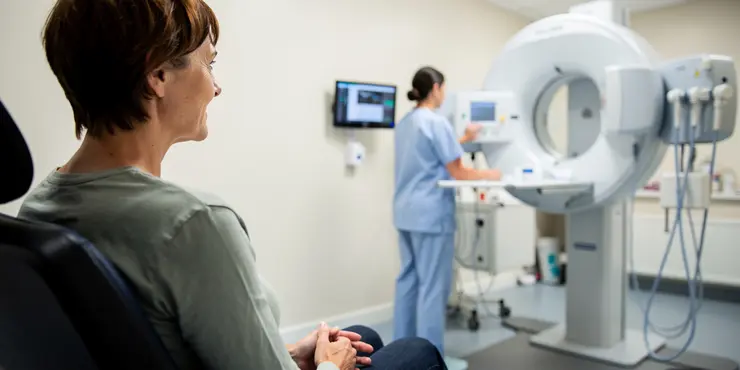
Radiotherapy to the Head and Neck: A Guide for patients and their carers
Relevance: 34%
-
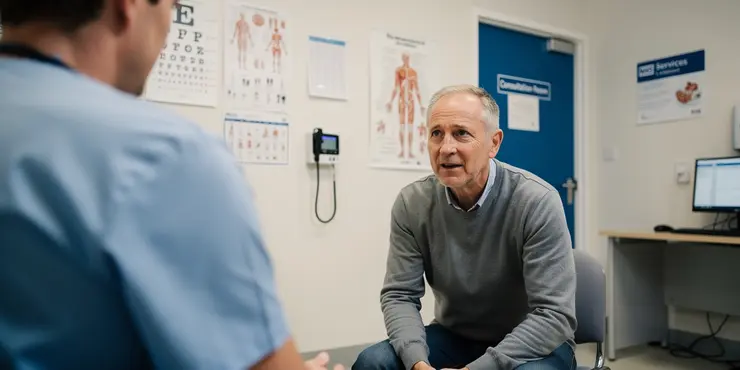
Can prostate cancer be treated with targeted therapy?
Relevance: 34%
-
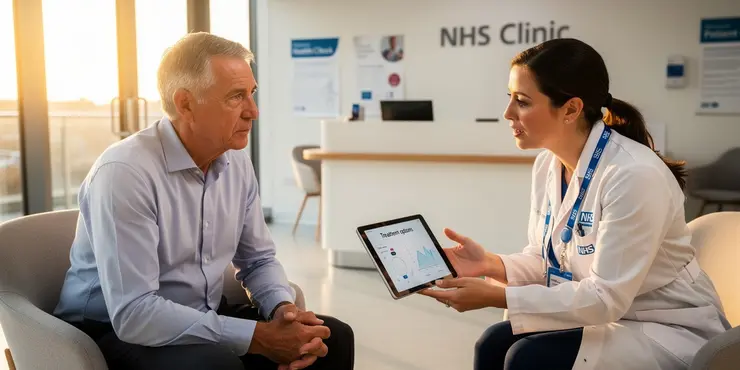
How is prostate cancer treated?
Relevance: 33%
Breakthrough Cancer Treatment Shows Promise for NHS Patients
Introduction
A recent breakthrough in cancer treatment is generating optimism among NHS healthcare providers and patients in the UK. This promising development involves an innovative therapy that aims to enhance survival rates and improve quality of life for cancer patients. As the NHS constantly seeks to integrate cutting-edge medical advancements to improve patient outcomes, this new treatment could represent a significant step forward.The Breakthrough Treatment
At the heart of this advancement is a novel immunotherapy approach. Immunotherapy leverages the body's immune system to identify and attack cancer cells more effectively. Unlike traditional methods such as chemotherapy and radiation, which can damage healthy cells along with cancerous ones, this targeted therapy aims for precision, potentially reducing side effects. The therapy has shown success in clinical trials, particularly for types of cancer that have been resistant to other treatments.Clinical Trials and Results
The treatment has undergone extensive clinical trials, with positive outcomes reported in leading medical journals. Participants in these trials experienced significant tumour reduction and remission rates, particularly in cases of advanced cancers. Researchers emphasize the importance of these findings, indicating a promising shift in cancer treatment paradigms. NHS patients involved in the initial trials have expressed optimism and gratitude for the potential life-extending benefits.Implications for NHS Patients
With the promising trial outcomes, NHS plans to expand the treatment's availability to more cancer centres across the UK. This rollout aims to ensure that a diverse range of cancer patients can potentially benefit from the innovative therapy. The NHS is currently assessing the treatment's scalability, cost-effectiveness, and integration within existing cancer care protocols to optimize accessibility and affordability.Looking Ahead
As the NHS continues to evaluate this breakthrough cancer treatment, stakeholders remain hopeful about its impact on public health. Continued research and monitoring will be essential to refine the treatment and maximize its effectiveness. This development highlights the NHS's commitment to adopting advanced medical technologies to improve patient care across the UK, potentially transforming the landscape of cancer treatment for years to come.Breakthrough Cancer Treatment Shows Promise for NHS Patients
Introduction
Doctors and nurses in the UK are happy about a new way to treat cancer. This exciting news means there is hope for people who are sick. The new treatment might help people live longer and feel better. The NHS always looks for new ways to help people get better. This new treatment could be an important new way to help people with cancer.The Breakthrough Treatment
The new treatment helps the body's own defenses fight cancer. It's called immunotherapy. This is different from the old way, like using strong medicines that can hurt good cells too. The new treatment tries to hit only the bad cancer cells. This might mean fewer bad side effects. The treatment has worked well in testing, especially for tough cancers that did not get better with other treatments.Clinical Trials and Results
Doctors ran many tests to see if the treatment works. The results were good and shared in important medical books. Many people tested had their cancers shrink or even go away, especially for hard-to-treat cancers. Patients in these tests feel hopeful and thankful for a chance to live longer.Implications for NHS Patients
Because the tests were good, the NHS wants to give this treatment to more people. They plan to offer it in many hospitals across the UK. The NHS is looking at how much it costs and how to fit it into current ways of taking care of people with cancer. They want to make sure it is available and not too expensive.Looking Ahead
The NHS will keep checking if this new cancer treatment works well. Doctors and nurses hope it will help many people. They plan to keep studying it to make it even better. This shows how the NHS wants to use new ideas to help people across the UK. This treatment could change how cancer is treated in the future.Frequently Asked Questions
What is the new breakthrough cancer treatment?
The breakthrough cancer treatment involves an innovative therapy that targets cancer cells more precisely, reducing harm to healthy cells.
How does the treatment work?
The treatment uses advanced technology to identify and attack specific cancer cell markers, which helps in shrinking tumours while minimising side effects.
Which types of cancer does this treatment address?
Currently, the treatment shows promise for several types of cancer, including breast, lung, and prostate cancers.
Is the new treatment available through the NHS?
The treatment is in trials but shows potential to become available through the NHS once approved.
What are the key benefits of this treatment?
Key benefits include more effective targeting of cancer cells, reduced side effects, and the possibility of improved patient outcomes.
Who conducted the research on this new treatment?
The research was conducted by a collaboration between leading UK universities and NHS research centres.
When will this treatment be widely available?
If ongoing trials are successful, the treatment could be available to NHS patients within the next few years.
Are there any potential side effects?
While side effects appear to be fewer than traditional treatments, they may still include fatigue and mild nausea.
How can patients enrol in clinical trials for this treatment?
Interested patients should consult their oncologist, who can refer them to clinical trials if they are eligible.
What distinguishes this treatment from conventional chemotherapy?
Unlike conventional chemotherapy, which affects all rapidly dividing cells, this treatment targets only cancer cells, preserving more healthy tissue.
Are there any eligibility criteria for patients to receive this treatment?
Patients might need to meet specific criteria related to the type and stage of cancer, as well as overall health status.
How is this treatment administered to patients?
The treatment is typically administered via infusion in a hospital setting under specialist supervision.
How will this treatment impact the NHS budget?
While initially costly, the treatment may reduce long-term costs by improving patient outcomes and reducing the need for additional treatments.
What do experts say about the future of this treatment?
Experts are optimistic that this treatment could mark a significant advancement in personalised cancer therapy.
How can the public stay informed about developments in this treatment?
The public can stay informed through NHS announcements, medical journals, and press releases from research institutions.
What is the new cancer treatment breakthrough?
Doctors have discovered a new way to help people with cancer. This new treatment is a big step forward. It might make people feel better and live longer.
Here are some ways to learn more:
- Talk to a doctor or nurse. They can explain how the treatment works.
- Watch videos that show how the treatment helps people.
- Ask a family member or friend to read with you.
These tools can help you understand better. It is important to ask questions if something is unclear.
This new way to treat cancer is really smart. It goes straight to the cancer cells and leaves the healthy cells alone. This means less harm to the rest of your body.
If you need help reading, you can use tools like audiobooks or text-to-speech programs. They can read the words out loud for you. You can also ask someone to explain the big words. Drawing pictures can also help you understand better.
How does the treatment work?
The treatment helps you feel better. It might be a medicine or a special exercise. You follow steps to use it.
Here are some things that can help you:
- Ask a friend or family member to help you understand.
- Use pictures or videos to see how it works.
- Talk to a doctor or nurse if you have questions.
The treatment uses special technology to find and attack cancer. It helps make tumours smaller and tries to keep side effects low.
What kinds of cancer can this treatment help with?
This is a simple question. Let's find out what types of cancer this treatment can help with.
If it's hard to understand, ask someone to explain.
You can use tools like a dictionary to find out what cancer means.
Right now, doctors think this treatment could help with different kinds of cancer. It might help with breast cancer, lung cancer, and prostate cancer.
Using pictures or diagrams might help you understand this better.
Can I get the new treatment from the NHS?
The new treatment is being tested. It looks hopeful and might be offered by the NHS in the future once it is allowed.
What are the main good things about this treatment?
This treatment helps you in important ways. Here are the main good things:
Feel Better: This treatment can make you feel better and healthier.
Easy to Use: It's simple and not hard to use.
Doctor Approved: Doctors say this treatment is a good choice.
If reading is hard, try using pictures to help understand. You can also ask someone to read with you or use an app that reads out loud.
Important benefits are:
- Better focus on killing cancer cells.
- Fewer bad side effects.
- Chance for patients to feel better and get healthier.
Tools that can help:
- A friend or family member can read with you.
- Try using audiobooks.
- Ask your teacher or helper to explain big words.
Who did the research on this new treatment?
This question is asking about who studied and learned new things about a new way to help people get better.
Here are some tips to help understand and remember:
- Think about who might have learned about the treatment. It could be doctors or scientists.
- Use a tool like a voice reader to hear the question.
- Ask someone to explain the question in different words if you're unsure.
A team of top UK universities and NHS research centres worked together on this study.
When can everyone get this treatment?
If the tests go well, people might be able to get the treatment from the NHS in the next few years.
What are the possible side effects?
Sometimes, when people take medicine, it might make them feel not so good in other ways. These are called side effects. Let's learn what to look out for:
- Feeling sleepy: Some medicines might make you want to take a nap.
- Tummy ache: Your stomach might hurt a bit.
- Dizzy: You might feel like the room is spinning.
- Headache: Your head might hurt.
If you feel any of these, tell an adult or a doctor.
Tip: Use pictures or icons to help you understand words or ideas better.
This treatment doesn't have as many side effects as others.
But it can still make you feel very tired and a little sick.
How do people join medical studies for this treatment?
If you want to join a medical study, you need to sign up. Here’s how you can do it:
- Talk to your doctor: They can tell you if a study is right for you.
- Visit a hospital or clinic: They have people who can help you join a study.
- Check online: Some websites show studies you can join.
- Call the study team: They can give you more information.
Ask for help if you find reading hard. A family member, friend, or carer can help you understand more.
If you want to know more, talk to your cancer doctor. They can help you find special tests and treatments if you can take part.
How is this treatment different from regular chemo?
Try using pictures or videos to help you understand. You can also ask someone to explain it to you.This treatment is different from regular chemotherapy. Regular chemotherapy affects all cells that grow quickly. But this new treatment only targets cancer cells and keeps healthy cells safe.
Can anyone get this treatment?
Some people might need to meet certain rules to get the treatment. It's like checking if you can go on a ride at the amusement park.
If you're not sure, you can ask your doctor to help you understand. They can explain it in a simple way.
People may need to fit certain rules like what kind of cancer they have and how far it has spread, as well as how healthy they are overall.
How do patients get this treatment?
You usually get this treatment in a hospital. A nurse or doctor gives it to you through a needle. They make sure you are safe.
How will this treatment affect NHS money?
At first, the treatment costs a lot of money. But later, it can save money. It helps people get better and they might not need more treatments.
What do experts think about this treatment's future?
Experts are people who know a lot about a topic. They share their ideas about how this treatment might work in the future.
- Experts look at how well the treatment works now.
- They think about how the treatment could help more people.
- They may use studies and tests to make their guesses.
When trying to understand expert opinions, use these tools to help:
- Pictures: These can show what the treatment does.
- Videos: Watching a video can make things easier to understand.
- Ask Questions: If something is not clear, ask someone to explain.
Experts think this new treatment could be a big step forward in treating cancer in a way that is just right for each person.
How can people find out more about this treatment?
You can learn more about the treatment by:
- Watching the news.
- Checking health websites.
- Asking your doctor.
- Using apps that give health updates.
These tools can help you understand better:
- Text-to-speech apps to read out loud.
- Dictionary apps to explain hard words.
- Ask someone you trust to help you.
People can keep up to date by checking NHS news, reading medical magazines, and looking at news from research places.
Useful Links
This website offers general information and is not a substitute for professional advice.
Always seek guidance from qualified professionals.
If you have any medical concerns or need urgent help, contact a healthcare professional or emergency services immediately.
Some of this content was generated with AI assistance. We’ve done our best to keep it accurate, helpful, and human-friendly.
- Ergsy carfully checks the information in the videos we provide here.
- Videos shown by Youtube after a video has completed, have NOT been reviewed by ERGSY.
- To view, click the arrow in centre of video.
- Most of the videos you find here will have subtitles and/or closed captions available.
- You may need to turn these on, and choose your preferred language.
- Go to the video you'd like to watch.
- If closed captions (CC) are available, settings will be visible on the bottom right of the video player.
- To turn on Captions, click settings .
- To turn off Captions, click settings again.
More Items From Ergsy search
-

Breakthrough in Cancer Treatment Offers Hope for Prostate Cancer Patients
Relevance: 100%
-

Breakthrough Cancer Treatment Shows Promise for NHS Patients
Relevance: 97%
-

What is Paillon treatment for cancer?
Relevance: 48%
-
What is the role of immunotherapy in prostate cancer treatment?
Relevance: 46%
-

What types of exercise are beneficial for bowel cancer patients?
Relevance: 46%
-

Are there online support services for prostate cancer patients on the NHS?
Relevance: 45%
-

Are there clinical trials available for prostate cancer treatment?
Relevance: 45%
-

What types of treatments are available for testicular cancer?
Relevance: 45%
-

How can AI improve patient outcomes in lung cancer?
Relevance: 45%
-

What factors determine the treatment plan for prostate cancer?
Relevance: 45%
-

How does Abiraterone work in cancer treatment?
Relevance: 44%
-

What treatment options are available for bowel cancer?
Relevance: 44%
-

What is Radiotherapy, and its use in treatment for cancers?
Relevance: 44%
-

Can testicular cancer recur after treatment?
Relevance: 44%
-

What is the purpose of a bone scan in prostate cancer treatment?
Relevance: 43%
-

Breast cancer: testing and treatment | NHS
Relevance: 42%
-

Can prostate cancer recur after treatment?
Relevance: 42%
-

What are the side effects of bowel cancer treatment?
Relevance: 42%
-

Where can I find online resources for prostate cancer treatments on the NHS?
Relevance: 42%
-

Can lifestyle changes complement prostate cancer treatment?
Relevance: 42%
-

Does Paillon treatment treat all types of cancer?
Relevance: 41%
-

What is active surveillance in prostate cancer treatment?
Relevance: 41%
-

What is the future of AI and robotics in lung cancer detection and treatment?
Relevance: 41%
-

Can children with cancer receive Paillon treatment?
Relevance: 40%
-

Hernias and their Treatments - A guide for patients
Relevance: 37%
-

Vaginal Cancer
Relevance: 36%
-

Treating prostate cancer
Relevance: 36%
-

Cancer treatment: what happens during radiotherapy? | NHS
Relevance: 36%
-

Endometrial Cancer
Relevance: 36%
-

Infertility - IVF Treatment and Patient Information
Relevance: 36%
-

Does Abiraterone cure prostate cancer?
Relevance: 34%
-

When is chemotherapy used for prostate cancer?
Relevance: 34%
-

Head and Neck Cancer Diagnosis
Relevance: 34%
-

How is advanced prostate cancer treated?
Relevance: 34%
-

Chemotherapy - the patient journey
Relevance: 34%
-

What is Cancer?
Relevance: 34%
-

What support is available for individuals diagnosed with bowel cancer?
Relevance: 34%
-

Radiotherapy to the Head and Neck: A Guide for patients and their carers
Relevance: 34%
-

Can prostate cancer be treated with targeted therapy?
Relevance: 34%
-

How is prostate cancer treated?
Relevance: 33%


